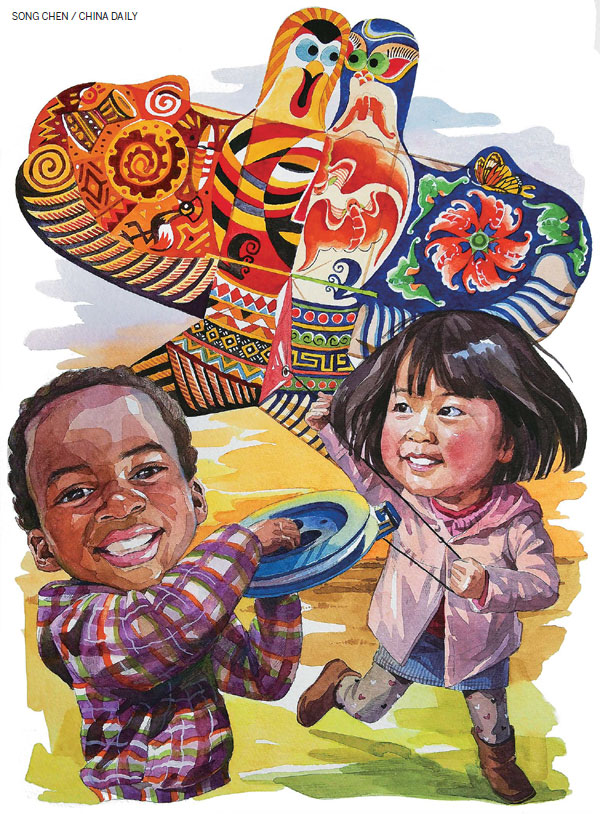Another kind of new normal
Uganda's president sets out his hopes for his country, and talks of the role China can play
President Yoweri Museveni of Uganda says he expects the country's economy to keep on steaming ahead, growing at more than 15 percent a year over the next few years, as China throws itself into the task of improving the country's infrastructure.
Museveni was speaking in an exclusive interview with China Daily in Beijing when he was on a five-day state visit to China that ended on April 1.

From 2005 to 2014 Uganda's GDP grew at an average of slightly more than 7 percent, according to the World Bank figures.
"It was primarily education and human resources development that boosted the growth," Museveni said.
However, that was akin to "software" being upgraded, he said, and what the country now needs is upgraded "hardware", or better infrastructure, to maintain growth.
"If there are no roads, no electricity, no means of transport, how can growth come about?"
This echoes China's recent initiative in setting up the Asian Infrastructure Investment Bank, an international lender aimed at supporting infrastructure construction in developing countries.
Museveni voiced his enthusiasm for the idea of improving infrastructure to boost development, on the grounds that this produces not just immediate gains, but also optimizes the economic structure of a country.
"Uganda can export processed agricultural products (and) textiles, and China can cooperate with us in terms of infrastructure construction such as railways and road construction."
China's moving its industries to countries such as Uganda could help his country move up the industrial chain, he said.
There would be more money to be made that way, rather than from just exporting raw products.
Chinese investment is particularly welcome because there are no political strings attached, he said.
"We do not like Western countries that provide aid (in return) for control. They want to turn African countries into mere puppets."
Africa is open to advice, he said, but that is different from receiving commands, because "no one understands Africa better than Africans".
Museveni said there are many ways of achieving economic prosperity, and every country should choose its own path, but at the same time learn from others. On his latest visit he was particularly impressed with how China was developing, he said. In addition to meeting President Xi Jinping and Premier Li Keqiang, he toured industrial parks in Tianjin. He also delivered an hour-long speech at the Uganda-China Business Forum in Beijing, sponsored by the Uganda embassy in Beijing and China Association of Small and Medium Enterprises. In the speech he particularly encouraged Chinese smaller enterprises to invest in Uganda.
One thing he picked up about China, he said, is that some big enterprises owned by the state follow market rules, and another is that authorities have a role in development by setting up industrial and other zones. Uganda is likely to follow suit in this regard, he said.
On the controversial issue of anti-gay laws in Uganda, he said: "Even in the past, before we had contact with the West, there were homosexuals in Africa. They are not killed - neither are they promoted. The mistake is, some in Western countries want to promote it. I don't think our policy is a violation of human rights because we need the positive side of the family. It is pointless to talk about political rights without food, without shelter."
Pointing to a guidebook for tourists in Uganda, he said the country's tourism sector is another field with huge growth potential.
Uganda is called "The Pearl of Africa", having jurisdiction over a large part of Lake Victoria, and being endowed with beautiful scenery and an abundance of wildlife, all of which are attractive to global tourists.
"I hope this new industry helps Uganda's development in the long run," Museveni said.
Contact the writers at huhaiyan@chinadaily.com.cn; zhangzhouxiang@chinadaily.com.cn


















